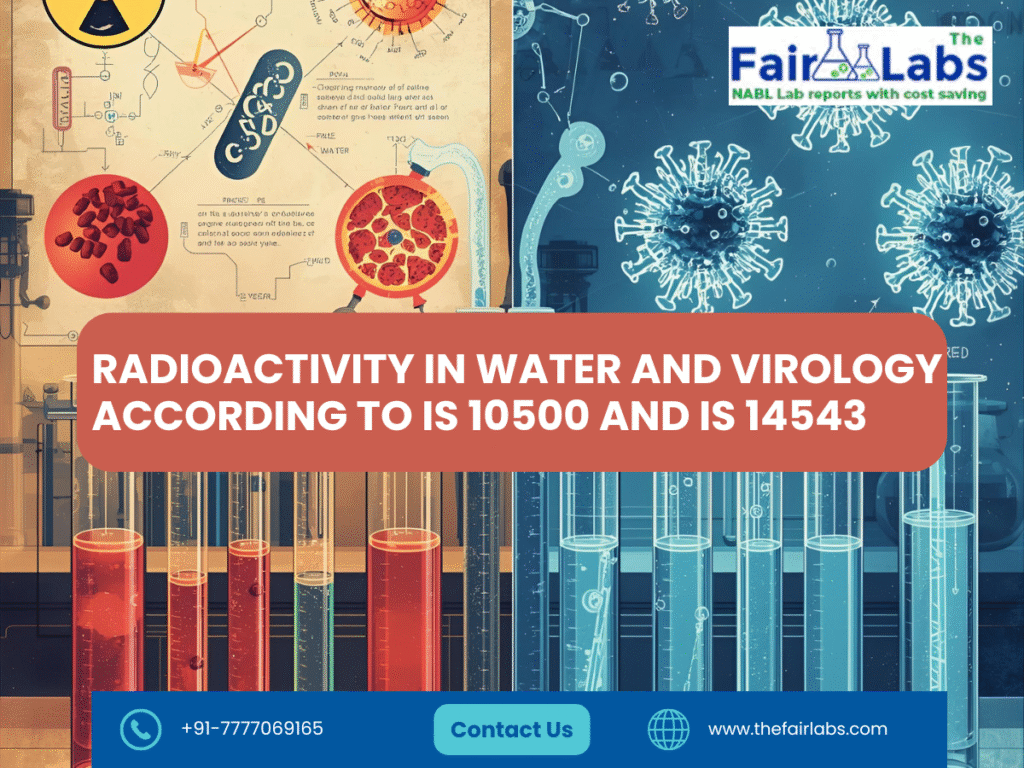Food Shelf Life Testing – Ensure Quality, Safety & Longer Product Life
Wiki Article
When it comes to packaged foods and beverages, maintaining product freshness and safety is crucial. Every food manufacturer in India must ensure that their products remain safe, nutritious, and appealing throughout their shelf life. This is where food shelf life testing plays an important role.
At The Fair Labs, one of the most trusted testing labs in India, we provide comprehensive food shelf life testing services to help you determine how long your product can stay fresh without compromising quality or safety.
What Is Food Shelf Life Testing?

Food shelf life testing is a scientific process used to evaluate the period during which a food product maintains its desired sensory, chemical, and microbiological characteristics under specific storage conditions.
In simple terms, it helps you know how long your product remains safe and suitable for consumption. The results guide manufacturers in setting accurate “Best Before” and “Use By” dates printed on packaging.
This testing is essential for every category of food — whether it’s baked goods, beverages, dairy, snacks, frozen items, or ready-to-eat meals.
Why Is Food Shelf Life Testing Important?
Ensuring food safety is not just a regulatory requirement but also a matter of customer trust. Here’s why food shelf life testing is essential for your business:
Compliance with FSSAI and global standards
Testing ensures that your product meets Indian food safety regulations and international standards.Consumer safety
It prevents health risks caused by microbial spoilage or chemical degradation.Product quality assurance
Shelf life studies help maintain taste, color, texture, and nutritional value.Brand reputation
Reliable shelf life data protects your brand from complaints or recalls due to expired or unsafe products.Improved packaging decisions
Results from food shelf life testing help determine the most effective packaging materials and conditions for your products.
Key Factors Affecting Food Shelf Life
The shelf life of a food product depends on several internal and external factors. Understanding these factors helps you design products with a longer, more stable life.
Product composition – Ingredients such as fat, moisture, and preservatives influence the shelf life.
Processing method – Heat, drying, and freezing can extend or reduce stability.
Packaging material – Oxygen and light permeability affect product freshness.
Storage conditions – Temperature, humidity, and exposure to light have a major impact.
Microbial activity – Growth of bacteria, yeast, or mold reduces food safety.
Transportation and handling – Physical damage can lead to faster spoilage.
Our Food Shelf Life Testing Process
At The Fair Labs, we follow a structured and scientific approach to food shelf life testing to deliver reliable results.
1. Product Understanding
We begin by analyzing the product type, ingredients, packaging, and storage conditions. Each product has unique stability characteristics, so understanding these helps us design a customized testing plan.
2. Sample Preparation
Samples are collected in a controlled environment, ensuring they are representative of your production batch.
3. Storage Simulation
We store the samples under real-time and accelerated conditions — mimicking how your product will behave on store shelves, in warehouses, and at consumer homes.
4. Periodic Testing
At regular intervals, we analyze physical, chemical, and microbiological parameters such as:
pH
Moisture content
Color & appearance
Texture
Odor and taste
Microbial count
5. Data Interpretation
Our experts interpret the test results and plot the stability curve to determine the product’s safe consumption period.
6. Shelf Life Report
We provide a detailed food shelf life testing report that includes:
Recommended shelf life duration
Storage and packaging recommendations
Product safety and quality assessment
Types of Shelf Life Testing Offered
We offer comprehensive food shelf life testing services across multiple categories:
Real-time shelf life testing
Products are stored under standard conditions for the expected duration.
Gives the most accurate shelf life results.
Accelerated shelf life testing
Products are stored under extreme conditions (temperature, humidity) to predict shelf life quickly.
Useful for faster product launches.
Microbial shelf life testing
Focuses on detecting spoilage microorganisms like bacteria, yeast, and mold.
Sensory shelf life testing
Evaluates changes in color, flavor, and texture through sensory panels.
Packaging compatibility testing
Ensures the selected packaging material maintains product stability.
Industries We Serve
Our food shelf life testing services cater to a wide range of food and beverage industries:
Bakery and confectionery
Dairy and ice creams
Packaged snacks
Ready-to-eat foods
Frozen and processed foods
Juices and soft drinks
Spices, condiments, and sauces
Health supplements and nutraceuticals
Why Choose The Fair Labs for Food Shelf Life Testing in India?
As a leading testing lab in India, The Fair Labs combines advanced technology, expert analysis, and strict quality standards to ensure accurate results.
Here’s what makes us the preferred choice for food shelf life testing:
State-of-the-art testing equipment
Our lab is equipped with advanced instruments for physical, chemical, and microbiological analysis.Experienced professionals
Our team of food technologists and microbiologists ensures every test is scientifically accurate and compliant.FSSAI, NABL, and ISO standards
We follow globally accepted protocols and maintain strict quality control throughout the process.Customized solutions
Each product is different — we design personalized shelf life testing protocols based on your needs.Comprehensive reporting
Our detailed reports include shelf life data, risk assessment, and improvement recommendations.Nationwide service
We serve clients across India, offering sample collection and support in all major cities.
Benefits of Conducting Food Shelf Life Testing
Performing food shelf life testing offers multiple long-term benefits to manufacturers and brands:
Helps optimize formulation for better product stability
Reduces wastage and product returns
Strengthens regulatory compliance
Enhances customer trust and satisfaction
Enables better inventory management
Supports export requirements with reliable data
How Often Should Shelf Life Testing Be Done?
Report this wiki page